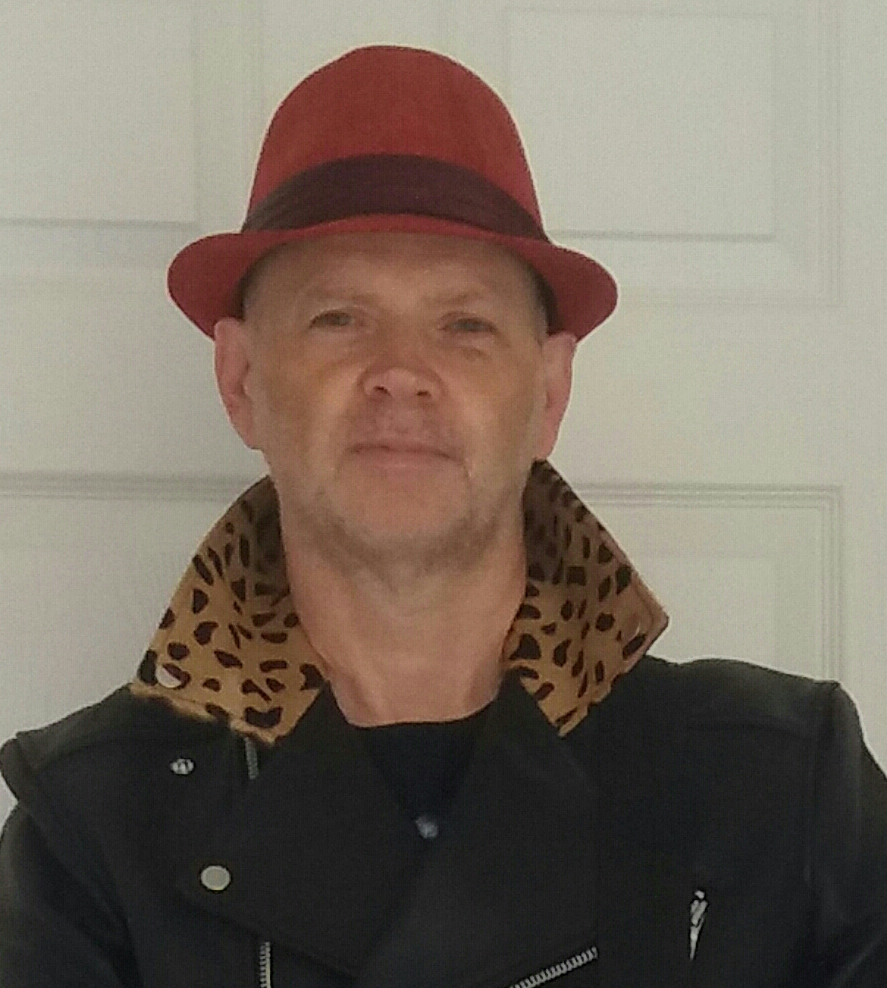Michael Schenker: "Rudolf doesn’t have much talent as a guitarist - I needed to pave the path for him. I’m saying that with an open heart"
Whether he’s talking about the Scorpions, UFO, his new album or the 'distortion of his image', the German guitar legend is as candid as ever

It’s been almost 50 years Since Michael Schenker made his recording debut at age 16 on the Scorpions’ debut album, 1972’s Lonesome Crow. From the start it was obvious he was at a playing level that was well beyond many of his contemporaries.
This little detail was noticed by UK rockers UFO, who poached Schenker from the Scorpions in 1974 after witnessing his chops first-hand. Their first album together, Phenomenon, was a game-changer for UFO in terms of their commercial appeal.
Schenker had everything - the guitar-hero image, the chops and the iconic Gibson Flying V. Fame didn’t sit well with him, however, and he developed a reputation for unreliability and unpredictability. He left UFO in 1978 ahead of the release of 1979’s Strangers in the Night, an oft-cited contender for the title of greatest live album of all time.
After a brief return to the Scorpions for Lovedrive in 1978, Schenker filled guitar hot seats with Aerosmith, Ozzy Osbourne and Ian Hunter. He calls this period - the era leading up to forming The Michael Schenker Group with vocalist Gary Barden - his “first phase.”
The ensuing “second phase” saw Schenker endure a roller-coaster of highs and lows. The highs included his time with McAuley Schenker Group and a brief return to UFO; the lows involved personal problems that saw him endure a costly divorce, and a period where he seemed to have cut himself adrift from the world of rock.
Schenker’s current “third phase” kicked in when he realized he was no longer suffering from stage fright in 2008 - and he began to actively relish performing.
Schenker is eloquent and animated when he describes the travails of a life where success came before he was ready, and where he feels the lessons life has taught him have ultimately brought him the happiness he feels today.
Get The Pick Newsletter
All the latest guitar news, interviews, lessons, reviews, deals and more, direct to your inbox!
His latest release, Revelation - under the banner Michael Schenker Fest - is a hard-rocking and celebratory confirmation from Schenker that he’s the happiest and hungriest he’s ever been.
Revelation has come out relatively quickly after the last release [2018’s Resurrection]. Are you feeling prolific?
"I’m used to doing one album a year from my UFO days. I’m 64. I’m not gonna sit around not doing anything. I always play and discover. I go treasure hunting - I enjoy my journey, and when I find a piece of gold, I put it on a cassette recorder.
"I keep collecting pieces. I never get any kind of writer’s block. We had a lot of space in the schedule and time is ticking quickly; I’m not going to wait forever, you know? It was just the right time for me."
Given that Michael Schenker Fest involves four singers, how do you decide which vocalist will get which song?
"I let the universe do the work. I send the same pieces out to everyone at the same time and see who comes back first. I work on a first come, first served basis, so whoever responds first gets the song.
"Doogie [White] usually comes to me quickly and picks a few. Robin [McAuley] came back immediately and picked one. Graham Bonnet picked two and insisted on writing his own lyrics and melodies. I’m very happy he did, because he did such a great job.
![Michael Schenker Fest [from left]: Bodo Schopf, Chris Glen, Graham Bonnet, Michael Schenker, Gary Barden, Steve Mann, Doogie White and Robin McAuley](https://cdn.mos.cms.futurecdn.net/p97iH56kE2KhcSJXjHwQwX.jpg)
"I had four songs where I wanted everybody singing. I love Gary Barden’s low voice, so I always try to keep some aside for him, as he is so bluesy and full-sounding. The funny thing is that everybody picked fast songs, so the whole album is really up-tempo. You can’t control everything, so you let it go and develop itself and see what transpires."
Behind the Smile takes an unexpected turn, with that almost folk-like intro before the main song kicks in.
"It’s a great song. I think maybe Doogie picked it because it was an almost Scottish intro. I can see him in a kilt singing that one. I love the keyboards; it lifts the song and makes everything move around. It’s very catchy as well."
There’s a very upbeat feel to the album. Do you feel positive these days? I know you’ve had some tough times over the years.
All of a sudden, by the time of Strangers in the Night, people are saying Michael Schenker is God. I’m thinking, 'What!?'
"At this point, I can see very clearly what happened to me. Everything had to be the way it went. The first part of my life, unconsciously, I was just playing around. I didn’t compete with anybody, I didn’t want to be famous: I just wanted to have fun.
"All of a sudden, by the time of Strangers in the Night, people are saying Michael Schenker is God. I’m thinking, 'What!?' I helped the Scorpions with the Lovedrive album, then I looked at myself and I thought, 'I’ve experienced what it is to be successful and famous, so I have a choice now. Do I want to stay there and keep chasing the same thing everybody is chasing, or do I want to see this as one chapter, and focus on a new chapter?'
"That next phase - where I started to play the black-and-white Flying V - Ozzy, Aerosmith, Ian Hunter - anyone who’d asked me to join them would have been very unhappy with me. They would have had to put up with my experiments."
You had great success with MSG then, so you must have had some focus on what you were looking for.
"All I wanted to do was find an unknown singer - which I found in Gary [Barden] - an easygoing guy with a great bluesy voice. I have two tattoos; one says “Born to overcome” and the other says “Born to be free.” They symbolize my middle years.
"I intuitively knew I did what I had to do in those years. I was bubbling with creativity. I made too many albums, almost, but I got everything out of my system — the fame and status.
"I think I made my musical contribution in the 70s, which everyone then used in the 80s. People would ring me up in the early 80s, saying, 'Michael, they’re all playing your guitar style.'
"I said, 'don’t worry about it. I have other things to do.' I think my assignment was to jump-start things in the 70s. I jump-started the Scorpions and UFO - they should be happy about it - then I carried on with my own style.
I believe if you stay true to yourself, everything will come to you. If I’d not had those difficult periods when I was trusting myself and my vision, I wouldn’t be as happy as I am now
"I always had terrible stage fright, but in 2008 something inside me said, 'Michael, go on stage,' and I realized I wanted to be on stage. Everything changed, 180 degrees. I became a different person, but that’s because of those middle years, when things weren’t always great for me.
"I always stayed true to myself. Maybe I could have joined Ozzy or something, but then who knows where I might be now. Maybe not even alive, you know? I believe if you stay true to yourself, everything will come to you. I never sold out, and I built a really big foundation for my present phase. If I’d not had those difficult periods when I was trusting myself and my vision, I wouldn’t be as happy as I am now."
Your solos are often very memorable. Do you consciously work out what you’re going to play?
"In Search of the Peace of Mind is the first song I’d ever written. It was credited to all the Scorpions, but I wrote the music and Klaus [Meine] wrote the lyrics. That first solo I recorded was just perfect, unbelievable. It came out of nowhere. It will be forever just right.
"I wrote all the music for the songs in the Scorpions, although they credited themselves for it incidentally. They were nearly seven years older than me, so I guess they took advantage. It didn’t matter to me at the time as I was an artist, and I enjoyed the reward of the music.
"I did have a period, when I was interested in harmony guitar solos, where I did write the parts, as you need to have that more planned out, but for the last 20 years or so I’ve wanted to play more bluesy and rocky - since [2011’s] Temple of Rock.
"Everything is improvised now. I don’t write any solos these days. I don’t play ballads or slow songs, so there isn’t really a space for writing a solo. It is interesting what you say, as when I listen back to my solos, I think it does sound like I composed them."
The break on Only You Can Rock Me is the perfect example of what a solo should do.
"The funny thing is that it’s entirely improvised. I’m sure when I first played it, it didn’t sound the way it came out, but it sounds so structured and so well thought out. It isn’t, though. I just improvised it in the studio.
"That solo is me without making any efforts - every nuance of it is Michael. Every note needs to have a meaning. Many people can play many notes, but it doesn’t have any meaning."
Given your association with the Flying V, did Gibson ever offer to make you a signature model?
"[Laughs uproariously] Rudolf [Schenker, Scorpions guitarist and Michael’s brother] took care of that! He’s been working so hard at distorting my image, so people don’t know anymore which one is Michael and which one is Rudolf.
"Sometimes Rudolf would come up to me and proudly report who’d tapped him on the shoulder and said, 'Hey, Michael, how are you doing?' Slash and Joe Perry, for example.
"[Laughs] While I wasn’t looking, he managed for years to distort the hell out of the image of the Schenker brothers. People don’t have a clue anymore who is who. Because I’m younger and I was successful earlier and had the first hit in 1976, I was playing in America when I was 19 and Rudolph was 33 before he got to America for the first time.

People are so confused because I was six-and-a-half years younger. The Scorpions became so successful that people forget what the band was like at the start. It’s incredible how he managed to distort the whole thing. Rudolf made a deal with Gibson for black-and-white guitars.
"He asked me if I minded if he played a black-and-white Flying V. I asked myself why he wants to be me, but I just said, 'Go ahead.' Then he pushed it so far in trying to make the black-and-white image his. He doesn’t know who he is. Then he had the cheek to make a deal with Gibson for a signature Flying V.
"I’m playing a Dean and he’s got the Gibson, and then people probably think he’s also the guy who used to play with UFO. It is remarkable. He’s a very strange guy, one of a kind. [Laughs]"
Perhaps as the older brother, he was expecting things might come to him first?
"Well, that is true. As the younger brother, I probably ended up wearing his underpants and school uniform, and riding his bike. He was the oldest and I got the hand-me-downs. I didn’t look for fame and success, but I became successful.
"I didn’t look to become an icon, but I became one, it became me. Rudolf focused on those things, but he couldn’t get it. It’s a strange message - that existence of two brothers who made such a weird success in their own way. The puzzle is not completed yet between us.
I jumpstarted the Scorpions. They should be happy instead of acting like I’m some little shit
"I know there is a reason for this peculiar journey through life between Rudolf and me. I hope I will understand it if I can get another 10 years on the planet. I’m not bitter about the stupid games he played. He was probably very frustrated that everything he wanted was coming to his much younger brother without even trying for it.
"I believe I was born to make him successful. Rudolf doesn’t have much talent as a guitarist. Without direction, he is lost. He copied everything I did. [Laughs] I needed to pave the path for him.
"I’m not saying that competitively, but with an open heart. I jumpstarted the Scorpions. They should be happy instead of acting like I’m some little shit. [Laughs]"
What initially drew you to the Flying V?
"It is meaningless in a way, but when I was 14 when we had an hour in woodwork class, I decided to build a guitar and it was a triangle shape. So, the shape came to me; I didn’t look for it. I was never interested in the instrument itself, more what I could do with it.
"Then when I heard Leslie West and Johnny Winter and Jeff Beck, I’d wonder what they played, you know? I identified with the ones who played how I wanted to play, but I started going my own way. There was no point in copying someone else."

What was the situation when you were giving guitar lessons some years ago? People regarded it as a sign that life was going badly for you, given the heights your career had reached prior to that.
"It was more therapeutic, a part of my middle years. I did so many self-improvement programs and stuff like that. I was thirsty for it. I ended up in the country I was most intimidated by - America - to do most of my work, which seems really weird in a way.
"Americans used to intimidate me, but that was where I did all my self-improvement work. I had such a thirst to learn and know who I was. Because of that, I understood who I was. I wanted to learn to be social. I used it to invite people into my privacy.
"It wasn’t so much guitar lessons, more about how they can become something individual or unique. I’d show them how I wrote songs - practical things. Sometimes I just talked. It wasn’t how to become famous, more about the whole Michael philosophy."
What’s the one thing that kept you going through everything?
"I think there’s something inside of me that is untouchable; a connection to the creator of creations. I’m connected to the essence of myself. I can feel that essence and that connection.
"I used to say I may be shaky on the outside, but I have the strength of pure gold in the center of my being that is always with me. That is where all the intuition comes from. I don’t have a high IQ or anything. I’m working with something I don’t consciously understand.
"We don’t know a lot about our lives, but that belief in the inner-self - self-acceptance - it is very important. You need something to hold on to, then you need to trust yourself, and accept yourself. Everything that needs to happen will happen, and all will come to pass."
Mark is a freelance writer with particular expertise in the fields of ‘70s glam, punk, rockabilly and classic ‘50s rock and roll. He sings and plays guitar in his own musical project, Star Studded Sham, which has been described as sounding like the hits of T. Rex and Slade as played by Johnny Thunders. He had several indie hits with his band, Private Sector and has worked with a host of UK punk luminaries. Mark also presents themed radio shows for Generating Steam Heat. He has just completed his first novel, The Bulletproof Truth, and is currently working on the sequel.
“I just learned them from the records. I don’t read tabs or anything, I don’t read music – I learned by ear”: How a teenage Muireann Bradley put a cover of Blind Blake’s Police Dog Blues on YouTube and became a standard bearer for country blues
“The Strat was about as ‘out’ as you could get. If you didn’t have a Floyd Rose, it was like, ‘what are you doing?’”: In the eye of the Superstrat hurricane, Yngwie Malmsteen stayed true to the original















